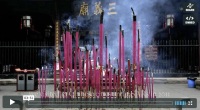Kneejerks to Xinhua Op-Ed that does not represent broader Chinese views.
The op-ed hit something of a sweet spot for shutdown-traumatized Americans, touching on, as Max Fisher at the Washington Post put it, “the dual American anxieties that we are letting down the rest of the world and that China is finally making its move to replace us as the global leader.”
– – –
Journalist’s Call for ‘de-Americanized World’ Provokes Alarm in U.S., Fart Jokes in China
by Liz Carter
Source – Foreign Policy, published October 16, 2013

As fears mounted this week about a possible (and now, it seems, averted) U.S. government default, the U.S. press stumbled upon an Oct. 13 editorial in Xinhua, China’s largest news agency, calling for a “de-Americanized world” in light of Washington’s fiscal dysfunction. News outlets including CBS, USA Today, and Bloomberg picked up the editorial, while the Los Angeles Times ran a story with the headline “Upset over U.S. fiscal crisis, China urges a ‘de-Americanized world.'” CNBC emphasized that Xinhua was a “government voice,” and that the editorial was “government propaganda” intended for local readers. The op-ed hit something of a sweet spot for shutdown-traumatized Americans, touching on, as Max Fisher at the Washington Post put it, “the dual American anxieties that we are letting down the rest of the world and that China is finally making its move to replace us as the global leader.”
But what much of the coverage failed to mention is that the article appeared on Xinhua with the byline Liu Chang, indicating that the editorial more likely represents the views of Liu (who is identified simply as a “Xinhua writer”) and his colleagues rather than China’s top leaders, or “China” itself.
Please click here to read the entire article at Foreign Policy.
Filed under: Beijing Consensus, Charm Offensive, China Dream, Communications, Culture, Foreign Policy Magazine, Ideology, Influence, Internet, Media, Nationalism, Peaceful Development, Politics, Public Diplomacy, Soft Power, Tao Guang Yang Hui (韬光养晦), U.S., xinhua















The Sharing Circle